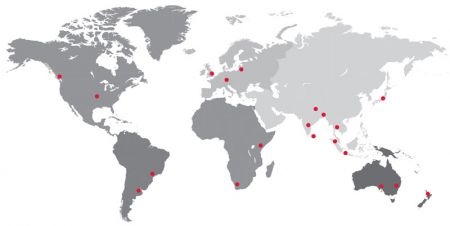International collaborations
One of the key aims of the Centre for Disaster Resilence (CDR) is to use specific partnerships with world-leading institutions to develop and extend their research quality, recognising that these should be based on mutual benefit.
Links with key industry stakeholders are key in facilitating the use of our research findings to inform and influence policy, strategy and operations. There needs to be key industry stakeholder buy-in where research findings are translated into programmable actions, appreciating the value of the findings and to embark on discussions on how to incorporate these perspectives in their work.
Sponsorship and support
In this context, our researchers have developed strong links with key industry stakeholders with the support from major UK, European and global agencies, which fund its research and development activities, as well as major sponsors from industry, local government and the not-forprofit sector including the European Union, the UK Engineering and Physical Sciences Council, the British Council, the Royal Institution of Chartered Surveyors and the UK Foreign and Commonwealth Office.
Working together to reduce risks
The Centre has been working with a large number of stakeholders to achieve resilient, sustainable urban communities by working with local governments to reduce the risks associated with disasters. Their involvement in the UN campaign on making cities resilient as a member of its advisory Board and as a key Academic Partner brings direct influence to global efforts to help cities and governments get ready and become resilient to disasters.
Our researchers are leading the ANDROID (Academic Network for Disaster Resilience to Optimise Educational Development) network of 64 universities across Europe, plus higher education institutions from Australia, Canada and Sri Lanka. The network promotes cooperation and innovations among European higher education institutions to increase society’s resilience to disasters. Its research and engagement has a significant influence on policymaking and practice and includes joint work to describe, analyse and compare the capacity of European cities and higher education institutions to address disaster risk. The network provides data, advice and guidance for policymakers and practitioners on the role of building and construction to anticipate and respond to unexpected major events which damage the environment.
Further, CDR currently enjoys a large number of international, strategically important partnerships with over seventy five international universities and institutions, including:
- Chamber of Construction Industry, Sri Lanka
- UNESCO
- Asian Disaster Preparedness Centre, Thailand
- Federation of Sri Lankan Local Government Authorities
- UNHABITAT
